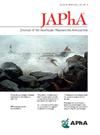TikTok’s Take on Adverse Effects for Glucagon-Like Peptide-1 and Gastric Inhibitory Polypeptide Receptor Agonists
IF 2.5
4区 医学
Q3 PHARMACOLOGY & PHARMACY
Journal of the American Pharmacists Association
Pub Date : 2025-03-04
DOI:10.1016/j.japh.2025.102384
引用次数: 0
Abstract
Background
TikTok’s MedTok is an interconnected network of patients, providers, and producers sharing knowledge and experiences of health-related topics. Awareness of popular content on weight loss medications can benefit health care professionals, especially regarding adverse effects and management.
Objectives
Describe content in popular TikTok videos using adverse effect hashtags for gastric inhibitory peptide (GIP) and glucagon-like peptide-1 (GLP-1) receptor agonists. Compare content between health care and non-health care creators and reported adverse effects versus medication package inserts.
Methods
This observational study evaluated videos for popular GLP-1 and GIP receptor agonist side-effect hashtags on TikTok, in June 2023. Video metadata collected included content creator demographics and content of video, including adverse effects discussed and recommendations to address these. Adverse effects were compared to package insert data. Qualitative data was evaluated through descriptive coding, quantitative data through descriptive statistics, and Pearson chi-square for comparisons.
Results
A total of 165 videos were analyzed. Content creators were mostly medication users (89%) and non-health care professionals (90%). Medication indications included weight loss (82%), polycystic ovarian syndrome (20%), and diabetes (6%). Diet, exercise, or weight loss were discussed in 34%, 16%, and 38% of videos, respectively. Non-health care professionals mentioned specific products to address adverse effects more frequently than health care professionals, 24% versus 13% (P = 0.292). All adverse effects mentioned in at least 5 videos aligned with medication package inserts, most commonly gastrointestinal disturbances, except for insomnia.
Conclusion
Most content creators were non-health care professionals and medication users. Despite Ozempic and Mounjaro lacking Food and Drug Administration approval for weight loss at the time, it was the most identified indication. The alignment of most reported adverse effects with medication package inserts underscores the reliability of user-shared experiences, though discrepancies like insomnia were noted. Given TikTok's remarkable reach and influence, awareness of patient-reported experiences and recommendations is essential for health care providers to enhance care and dispel misconceptions.
TikTok对胰高血糖素样肽-1和胃抑制多肽受体激动剂的副作用的看法。
背景:TikTok's MedTok 是一个由患者、医疗服务提供者和制作者组成的互联网络,他们分享与健康相关主题的知识和经验。了解有关减肥药物的热门内容对医疗保健专业人员大有裨益,尤其是在副作用和管理方面:描述使用胃抑制肽(GIP)和胰高血糖素样肽-1(GLP-1)受体激动剂副作用标签的热门 TikTok 视频内容。比较医疗保健和非医疗保健创作者的内容,以及报告的副作用与药物包装说明书:本观察性研究评估了 2023 年 6 月 TikTok 上流行的 GLP-1 和 GIP 受体激动剂副作用标签视频。收集的视频元数据包括内容创作者的人口统计学特征、视频内容(包括讨论的副作用和解决这些问题的建议)。副作用与包装说明书数据进行了比较。定性数据通过描述性编码进行评估,定量数据通过描述性统计和皮尔逊卡方进行比较:共分析了 165 个视频。内容创作者大多是药物使用者(89%)和非医疗保健专业人员(90%)。药物适应症包括减肥(82%)、多囊卵巢综合症(20%)和糖尿病(6%)。分别有 34%、16% 和 38% 的视频讨论了饮食、运动或减肥。非医疗保健专业人员比医疗保健专业人员更经常提及特定产品来解决副作用,分别为 24% 和 13% (P = 0.292)。至少有五段视频提到的所有副作用都与药品包装上的说明一致,最常见的是胃肠道不适,失眠除外:结论:大多数内容创作者为非医疗保健专业人士和药物使用者。尽管当时 Ozempic 和 Mounjaro 还未获得美国食品及药物管理局的减肥批准,但这却是被确认最多的适应症。大多数报告的副作用都与药品包装上的说明一致,这强调了用户分享经验的可靠性,但也注意到了失眠等差异。鉴于 TikTok 的覆盖面和影响力,医疗服务提供者必须了解患者报告的经验和建议,以加强护理并消除误解。
本文章由计算机程序翻译,如有差异,请以英文原文为准。
求助全文
约1分钟内获得全文
求助全文
来源期刊
CiteScore
3.30
自引率
14.30%
发文量
336
审稿时长
46 days
期刊介绍:
The Journal of the American Pharmacists Association is the official peer-reviewed journal of the American Pharmacists Association (APhA), providing information on pharmaceutical care, drug therapy, diseases and other health issues, trends in pharmacy practice and therapeutics, informed opinion, and original research. JAPhA publishes original research, reviews, experiences, and opinion articles that link science to contemporary pharmacy practice to improve patient care.

 求助内容:
求助内容: 应助结果提醒方式:
应助结果提醒方式:


